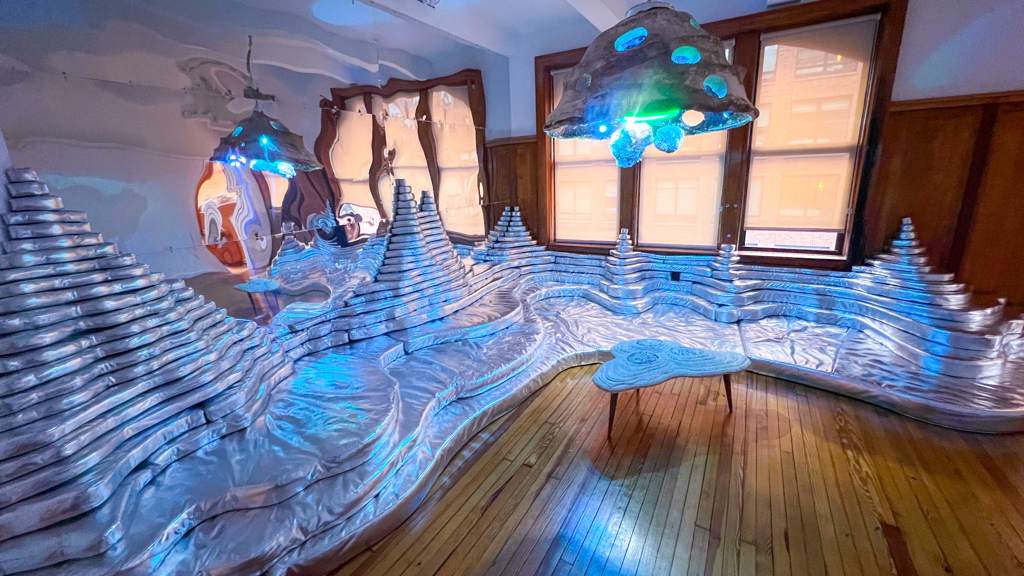Published
Fri, Jan 27, 2023, 15:00
- At Cardea, patients are dosed with ketamine nasal spray as they listen to live and recorded music.

Cardea, a new psychedelic wellness space located in Manhattan's Soho district, is officially open.
Combining ketamine's therapeutic properties with sound healing, the venue uses licensed physicians and music experts to treat individuals dealing with psychological issues, life changes, creative blocks or seeking self-discovery.
Participants administer ketamine and trip out to live or recorded music intended to aid in personal growth. This is what Cardea calls the Lascaux Method, a process it created that fuses psychotherapy with vibrational sound work, creative activities and bodywork.
The live performances, which consist of gongs, chimes and singing bowls, touch on indigenous folk traditions such as West Africa's Bwiti and Peru's Shipibo ceremonies, in addition to spiritual jazz.
"We find that vibrational instruments work best with ketamine," said Gregory Droggitis, one of Cardea's sound practitioners. "Think of it as a call and response: the sound is there to guide the client's journey, and their physical and emotional reactions to the sound and to the substances inform what we play."
The recorded soundtracks have been curated by Cardea's sound director John MacLean, AKA DFA Records affiliate Juan Maclean. Each of Maclean's tracks is "attuned to a particular ethos and the trajectory of the client's healing process, which is part of the dialogic between the space holder and client prior to each session," Cardea founder Dimitri Mugianis explained.
The centre, designed by artist Randy Polumbo, also organises psilocybin retreats. Lamps, tables and other decor made with mycelium dot its multi-room space. Ahead of Cardea's grand opening this week, the team held a talk at New York club Nowadays about the healing nature of ketamine, psilocybin and MDMA.
After undergoing a medical evaluation with a doctor, participants are prescribed a ketamine nasal spray that's compounded in a pharmacy and given recommended dosages.
"We don't believe there's one set ideal dosage for an individual to achieve a therapeutic effect from using ketamine, but there are ranges that can be effective," said Mugianis. Before and after each sound journey, individuals speak with therapists and psychedelic specialists, self-administering the spray. No therapy is performed during the sound journey itself.
In the US, ketamine is classified as a Schedule III substance, meaning it has moderate to low potential for physical and psychological dependence. Cardea's nasal spray uses racemic ketamine, a compound approved by the US Food and Drug Administration for anaesthetic purposes in medical procedures. This is considered "off-label" treatment—the drug is being used for a different purpose other than pain relief. Since the nasal spray is prescribed by a licensed clinician and taken at Cardea's space, the practice is fully legal, according to the team.
"The legal framework is well-established regarding the off-label use of ketamine," said Mugianis, whose team worked with medical professionals to obtain the appropriate license.
For more information, visit Cardea's website and check out some photos of the space.
Update, January 27th: This story was updated to include the name of Cardea's designer, Randy Polumbo.

 Update, January 27th: This story was updated to include the name of Cardea's designer, Randy Polumbo.
Update, January 27th: This story was updated to include the name of Cardea's designer, Randy Polumbo.